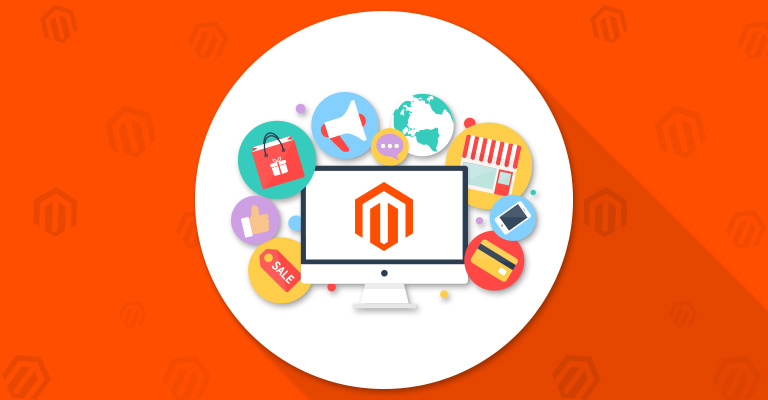When you think about “eCommerce”, Amazon, eBay, and Etsy are the first markets that pop up in your head. And now without wonder. They are the largest eCommerce marketplaces in the world, serving millions of customers throughout the world. Did you know Amazon receives 5,200M visits every month?
Crazy numbers. However, that’s what marketplaces get for featuring different vendors, sellers, and merchants and their products in one place.
Since creating marketplaces from scratches is a tough call, in this guide we’ll cover how to do this with the help of Magento 2 extensions, Magento 2 marketplaces extension in particular https://magefan.com/magento-2-extensions
Benefits of Creating a Marketplace with Magento

Before we jump right to the best Marketplace extensions for Magento, let’s see what benefits you will get with the marketplace.
Commissions
Commissions from the sold products are probably the main reasons for creating a marketplace in the first place. The more vendors you present on your market Magento, the bigger the number of products available on your marketplace, and the more commissions you get from those products being sold. Your revenue increases exponentially without you having to sell anything yourself.
Traffic
Marketplaces usually get more traffic than usual eCommerce websites because of the number of products presented there. The diversity of products you invite vendors to sell in your store allows driving higher traffic volumes than a single product type approach.
Marketing Opportunities
In a marketplace, all elements work interchangeably. The more vendors you feature, the more traffic you get, and the more people place orders on your marketplace. It enables you to create an impressive customer database you can use for marketing opportunities.
However, that’s not it.
Except for the benefits, you have to consider a few other things before you create a marketplace with Magento.
Things to Consider Before Getting into Development

The first eCommerce marketplaces had to learn everything the hard way since they’ve built their multi-vendor stores from scratch. Nevertheless, it helps us learn from their experience and point out a few important things to consider beforehand.
Market Research
The first and the most important thing to consider when you create a marketplace with Magento or any other platform is market research. Modern customers are empowered to receive certain kinds of service.
To provide that service and meet the expectations of both sellers and customers, you have to thoroughly research the market to find your ideal audience, study their interests, and draw a plan and key features you can offer them.
Server Power
Since you will receive a lot of traffic from different corners of the world and handle plenty of orders daily, you have to take into account the capabilities of your server.
The best option for Magento marketplaces would be cloud-based hosting which is easier to handle, set up, access, and adjust to your business needs. It automatically handles different traffic volumes and is cheaper since you don’t have to purchase a local server.
Domain Name
You probably won’t find a person that hasn’t heard of Amazon or eBay. That’s because these names stand out. They are short, easy to remember, and create positive connotations.
That’s what you should aim at too. People coming to your Magento marketplace should get an awesome experience they’ll associate with your domain name to come back later and recommend your marketplace.
Top 3 Best Magento 2 Extensions for Marketplace

Finally, we’ve come to the best part of this guide. If you’ve considered the most important things before creating your marketplace, it’s time time to get into it.
As we’ve talked about before, creating a marketplace with Magento from scratch is possible. But it is extremely time-consuming and troublesome. The experience of others shows us the best way around this is to create it with the marketplace extension for Magento 2.
1. Magento 2 Marketplace Extension by LandOfCoder
If you’re looking for the fully-featured Marketplace Extension for Magento 2, LandofCoder offers you an outstanding experience. It is a responsive, compatible, and robust solution that helps you create marketplaces like eBay or Amazon and manage them easily from one place.
This extension enables you to provide vendors with an extensive list of features, including, customer review management, order management, creating brand pages and profiles, adding and managing different products, customizing brand pages, and much more.
LandofCoder Marketplace extension for Magento 2 offers you advanced reporting capabilities, flexible commissions management, and a multitude of integrated payment gateways.
It is a complex solution you definitely have to consider.
2. Magento 2 Marketplace Multi-Vendor Module Webkul
Marketplace management requires you to cover plenty of things to create the best selling and shopping environments. Magento marketplace extension by Webkul is what you need to streamline the process and provide sellers with the most convenient selling point.
This extension enables sellers to have full control over their profiles in a separate seller dashboard where they control products, orders, shipments, returns, etc. Besides Webkul offers SEF URLs so vendors can create SEO-friendly URLs for more online visibility of their brand pages.
What is more, you can enable sellers to integrate Google Analytics tracking to meet customers’ expectations and analyze their store performance. It helps to improve and provide a better shopping experience for their customers and correspondingly drive more traffic to your marketplace.
3. Magento 2 Multi-vendor Marketplace Solution by CedCommerce
If Marketplace Extension for Magento 2 could have it all, the CedCommerce module will definitely stand out. It is a top-notch marketplace solution you can use to offer advanced service for sellers and customers.
This marketplace extension enables you to offer vendors advance order, logistics, advertisement, and shopping management options. You can also allow them to manage their profiles and stores with the easy-to-navigate and intuitive dashboard interface.
On top of that, you can create a mobile app for your marketplace to reach out to a wider audience and helps merchants stay connected with their customers even more.
Market Magento: How to Start a Marketplace?
Building a marketplace in Magento is not that easy if you start from scratch. But fortunately, there are plenty of tools to help you along the way.
As soon as you find your target audience, the last thing would be to choose the marketplace extension that will help you stand up to the needs of that audience.
Different vendors offer different features for you as the admin, your sellers, and their customers. The best extension would be the one that is the perfect mixture of features for all three.







